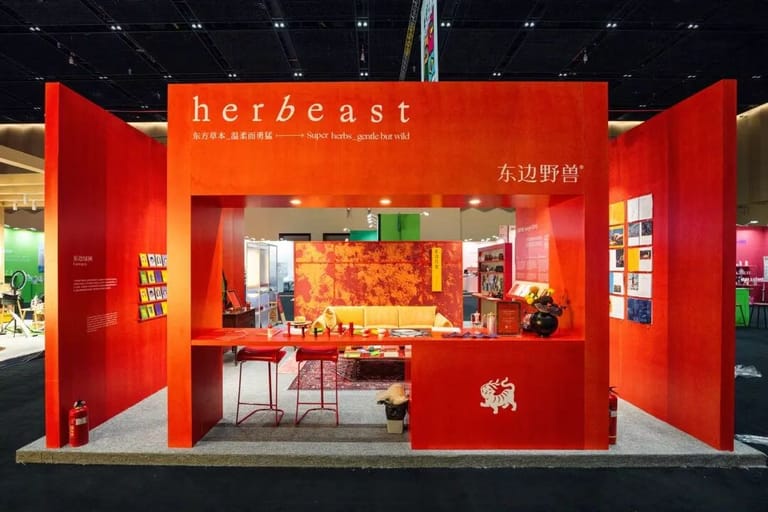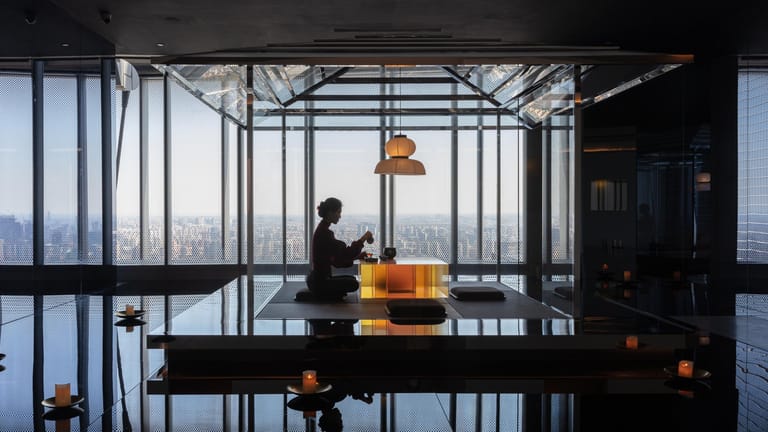Chinese Travelers Embrace Light Trips and Smart Escapes
By
Wenzhuo Wu

Published on
June 5, 2025

Jingzhi Curates is your daily compass for navigating the dynamic intersections of business, culture, and society. Each installment distills the day’s most pressing issues into thoughtful, actionable insights—perfect for leaders, innovators, and the intellectually curious. Whether a game-changing shift in global markets, a breakthrough in AI, or a cultural trend redefining consumer behavior, Jingzhi Curates delivers clarity in complexity.
As the fragrance of zongzi (粽子) lingers in the air and dragon boats ripple across lakes and rivers, China’s Dragon Boat Festival continues to mark a moment of cultural nostalgia, and now, evolving tourism behaviors. This year’s three-day holiday saw 119 million domestic trips, according to the Ministry of Culture and Tourism, a 5.7 percent year-on-year increase, with total domestic travel spending reaching 42.73 billion yuan, up 5.9 percent.
Yet beyond these national figures lies a deeper story of structural changes and refined preferences in how Chinese travelers engage with leisure.
Light Vacations and Local Escapes: A New Definition of Indulgence
Gone are the days when holidays equated to long-haul journeys or exhaustive itineraries. Instead, “light vacations”—featuring activities like glamping, chauffeured day trips, and curated admissions—saw per capita spending grow 8.8 percent, according to Alibaba’s Fliggy platform. This signals a shift from quantity to quality, as travelers opt for ease and elevation over distance.
Online travel agency Tongcheng Travel reported a marked rise in demand for high-end hotels, boutique stays, and vacation villas in and around cities. In Suzhou, for instance, local and nearby residents’ hotel stays surged 31 percent, affirming the trend of “living luxuriously at your doorstep.” This micro-tourism mindset prioritizes comfort, flexibility, and localized experiences, responding to both weather disruptions and a desire for low-stress leisure.
The Rise of Family-Centric Travel
This year’s Dragon Boat Festival coincided with Children’s Day on June 1, catalyzing a significant uptick in family travel. On Ctrip, China’s largest travel platform, parent-child travel orders made up 35 percent of all bookings, while searches for family-friendly hotels soared 45 percent compared to last year.
Whether it’s lakeside resorts, child-oriented themed stays, or nature-centric playcation packages, the market is clearly responding to a young, experience-hungry demographic. Travel is increasingly being seen as a platform for education, bonding, and storytelling—a shift that brands and destinations must reckon with.
Short-Haul Borders, Long-Haul Dreams
Despite rain and fluctuating travel sentiment, cross-regional movement still rose by 3 percent compared to last year. Yet the clearest winners were short-haul outbound routes—notably flights from Shanghai to Osaka, Hong Kong, and Seoul. With flight times under three hours, these routes offer quick escapes with minimal visa friction.
Meanwhile, hotel interest in budget-friendly destinations like Egypt, Russia, and Vietnam spiked 193 percent, 133 percent, and 119 percent respectively. These hotspots, often overlooked during peak holidays, are gaining ground among savvy travelers seeking cultural depth with budget flexibility.
Summer Horizons: From Nature-Based Study Tours to Belt-and-Road Expansions
Looking ahead, Dragon Boat bookings offered a glimpse into summer travel intentions. While traditional academic-themed summer camps once dominated, 2025 sees a pivot toward “nature study tours”: hiking in Western Sichuan, spelunking in Guizhou, or horseback exploration on the Hulunbuir grasslands are now top draws. Internationally, Japan, Singapore, and the UK lead outbound study tour preferences.
Early summer bookings on Qunar show outbound hotel reservations now span 1,788 global cities, up by 375 from last year. Notably, countries along China’s Belt and Road Initiative are gaining favor fast—with Luxembourg, Kazakhstan, Montenegro, Georgia, and Egypt witnessing over 10x increases in bookings. As new air routes open and diplomatic ties deepen, these emerging destinations are finding resonance with Chinese travelers hungry for novelty and narrative.
From child-first itineraries to mindful micro-escapes, Dragon Boat Festival 2025 reveals a tourism landscape that is increasingly intelligent, intentional, and diversified. Rather than racing outward, travelers are turning inward—toward quality, proximity, and purpose. The journey may be shorter, but the meaning runs deeper.












